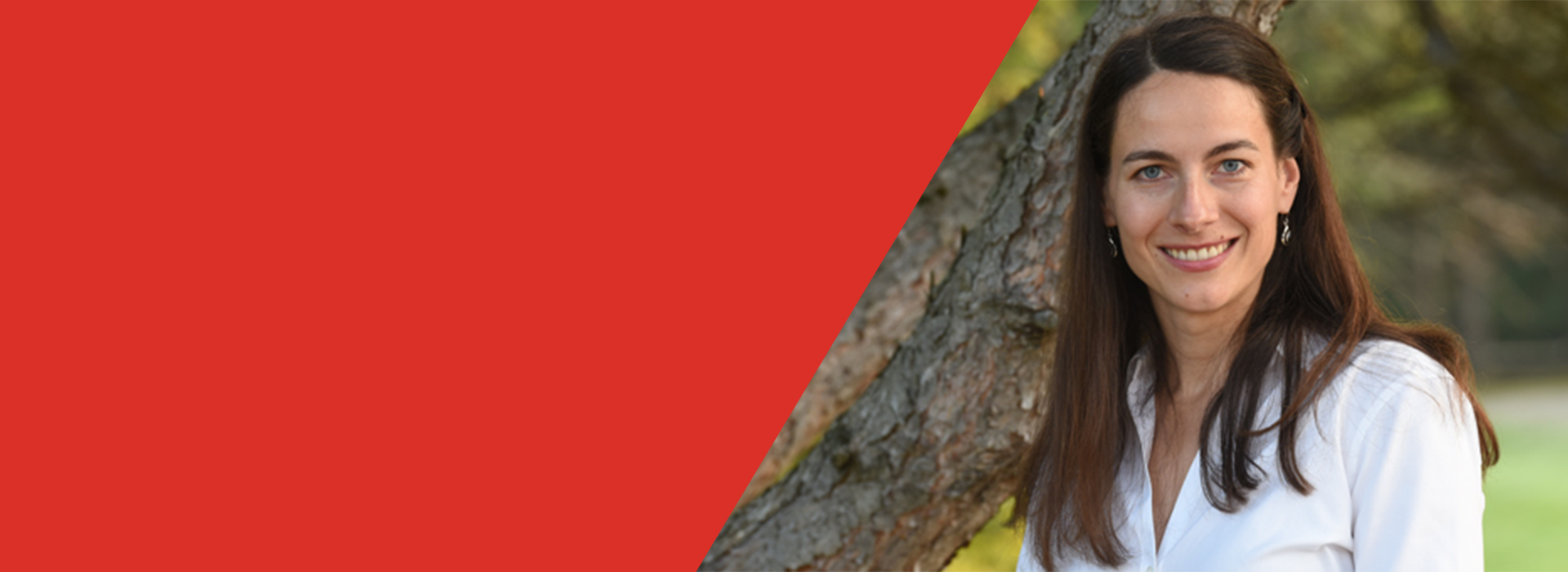By: Cynthia Macdonald
30 May, 2019

By understanding the details of how genetic mutations turn into tumours, CIFAR Azrieli Global Scholar Hannah Carter is paving the way for better, more personalized diagnosis and treatment.
A single faulty copy of a gene inherited from our parents can predispose us to cancer. But the precise way in which genetic mutations lead to cancer’s actual onset and development remains a mystery — particularly the interplay between inherited “germline” mutations and acquired “somatic” mutations.
2017 CIFAR Azrieli Global Scholar Hannah Carter is a computational biologist and assistant professor of medicine at the University of California, San Diego, who studies this very question. Working with giant data sets, she uses algorithms and cutting-edge software tools to discover how tumours develop at the molecular level.
“By understanding more about genetic background and the potential for a tumour to evolve,” says Carter, “we can project not just the likelihood of someone getting cancer in their lifetime, but perhaps where cancer will occur in their body, or whether the cancer will be more or less aggressive. And that will help inform screening.”
In an important 2017 paper published in Cancer Discovery, Carter and her team analyzed more than two million inherited cancer variants from 10,000 patient genomes in The Cancer Genome Atlas (TCGA), a landmark cancer genomics program started in 2006. They were able to locate more than 400 such variants that suggested where and how a malignant tumour might evolve.
Data gleaned from TCGA has ushered in a new era of cancer research. “We have all these different data layers that we can look at and study together. Which has given us an incredibly rich resource — there really isn’t another one like it,” says Carter.
For too long, cancer treatment has suffered from a one-size-fits-all approach. Relatively few patients are enrolled in any given clinical trial; and of those, only a small minority stand to benefit, since the effect of their particular genetic background isn’t considered.
By understanding more about genetic background and the potential for a tumour to evolve, we can project not just the likelihood of someone getting cancer in their lifetime.”
The advent of molecular oncology has changed this. Targeted therapies such as monoclonal antibodies and immunotherapy are now able to alter cell function in very particular ways. In some cases, results have been dramatic: even people with advanced metastatic disease have seen their tumours regress rapidly.
But there is still progress to be made. According to Carter, “tumours are challenging to deal with because they will eventually resist whatever therapies you throw at them. So we have to get smarter, and continue our efforts to understand them.”
The past two years have been eventful for Carter’s lab. In addition to providing clues as to how our germline and somatic genomes interact in the cancer process, she and her colleagues have also answered significant questions about how the immune system might be boosted more effectively to fight the spread of tumour cells.
I just became absolutely fascinated with the genetic and molecular basis of diseases.”
Though an expert in both machine learning and genetics, the Kentucky native actually began her professional career as an electrical engineer. (“There was a sharp left turn in there somewhere,” she says wryly.) Initially thinking she’d like to develop neuroprostheses, she enrolled in a program at Johns Hopkins University that allowed her to attend first-year medical school classes.
“I just became absolutely fascinated with the genetic and molecular basis of diseases — and so I switched at that point and joined a lab that was doing computational molecular biology,” she says. Her engineering background proved tremendously helpful as she built critical skills in machine learning and computational modelling.
Right now, Carter says, the biggest challenge in her field is amassing the data needed to make truly big cancer discoveries. Though much has been collected, much more is still needed. With the right tools, she and her colleagues are poised to make extraordinary advances in the years to come.
“Definitely this is an exciting time for cancer research,” she says. “The sheer number of studies and publications is daunting — it’s almost impossible to keep on top of the literature. But we’ve really made good inroads on understanding mechanistically how tumours are developing. We’re starting to come up with strategies to try to directly intervene in that development, and to further personalize cancer therapy.”
CIFAR is a registered charitable organization supported by the governments of Canada and Quebec, as well as foundations, individuals, corporations and Canadian and international partner organizations.